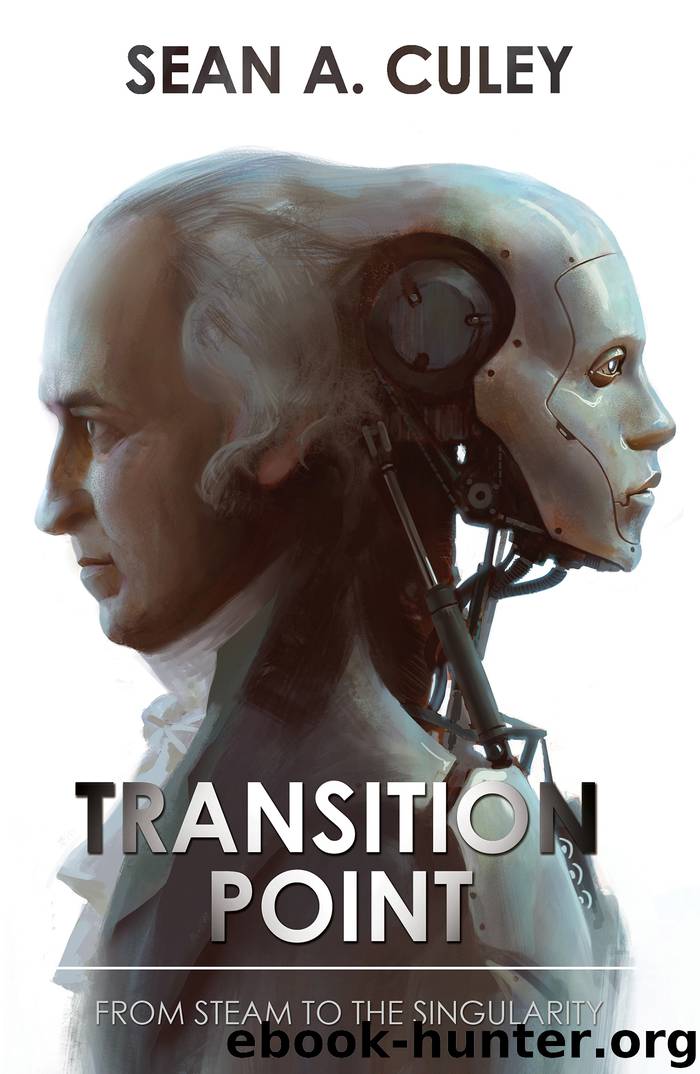Transition Point by Sean A. Culey

Author:Sean A. Culey
Language: eng
Format: epub
Publisher: Troubador Publishing Ltd
Published: 2018-11-12T16:00:00+00:00
How Safe is Your Data?
This raises the increasingly critical question of just how secure your data is in the hands of these corporations. Your value to them is in your data. We are assured that it is safe, but time and again, evidence is proving otherwise. Cyber-security is an ever-increasing risk, and every business needs to understand exactly who has access to your data, how they are likely to use it and whether they are friend or foe. In 2013, Yahoo was hacked, impacting every one of their 3 billion accounts. They initially admitted that 1 billion accounts had been affected, and it wasn’t until 2016 that they admitted to the remaining 2 billion. A second breach occurred in 2014 when hackers walked off with a half-billion Yahoo account records. Data leaked included names, telephone numbers, dates of birth, passwords and security questions. In 2012, 117 million LinkedIn passwords were stolen, and found to be for sale on the black market. In 2013, retailer Target disclosed that hackers had exposed the data of 40 million customers and agreed to pay around $10 million in compensation. Then, in 2017 a whole series of high profile data breaches demonstrated how fragile the cyber-security in most companies actually was. A faulty backup inadvertently exposed the entire working database of notorious spam operator River City Media (RCM), which contained more than 1.37 billion email addresses, plus additional details such as names, real-world addresses, and IP addresses. In South Africa a 27GB-sized cache titled MasterDeeds was leaked, containing records on over 60 million South Africans – both those currently alive and those that were deceased – with information going as far back as the late 1990s. The data includes ID numbers, names, genders, marital statuses, incomes, company titles, employment details and property ownership information. Uber admitted to paying $100,000 to conceal a cyber breach of their cloud service that exposed data on 57 million users. The credit-reporting company Equifax also finally owned up to a major data breach of private information such as addresses and social security numbers that had affected around 145 million people in the United States, almost half the population, as well others in the UK and Canada. Credit-card numbers for about 209,000 US customers were compromised, in addition to ‘personal identifying information’ on approximately 182,000 US customers.
Technology is now advancing so fast that many members of society, especially the elderly, simply can’t keep up. It’s becoming a blur that many mentally switch off from to protect their sanity, and this makes them a scammer’s dream. The ability to clearly distinguish between real and fake is becoming significantly more difficult in the digital age, even for the tech-savvy. Examples of AI and CGI technologies have been demonstrated to manipulate images, videos and audio to a level of realism where they can digitally replace a person’s face in a video, and change the words coming out of their mouth, and you would never know. For those who grew up in an analogue world,
Download
This site does not store any files on its server. We only index and link to content provided by other sites. Please contact the content providers to delete copyright contents if any and email us, we'll remove relevant links or contents immediately.
Whiskies Galore by Ian Buxton(41493)
Introduction to Aircraft Design (Cambridge Aerospace Series) by John P. Fielding(32863)
Small Unmanned Fixed-wing Aircraft Design by Andrew J. Keane Andras Sobester James P. Scanlan & András Sóbester & James P. Scanlan(32536)
Craft Beer for the Homebrewer by Michael Agnew(17905)
Turbulence by E. J. Noyes(7665)
The Complete Stick Figure Physics Tutorials by Allen Sarah(7099)
Kaplan MCAT General Chemistry Review by Kaplan(6550)
The Thirst by Nesbo Jo(6409)
Bad Blood by John Carreyrou(6247)
Modelling of Convective Heat and Mass Transfer in Rotating Flows by Igor V. Shevchuk(6209)
Learning SQL by Alan Beaulieu(5998)
Weapons of Math Destruction by Cathy O'Neil(5784)
Man-made Catastrophes and Risk Information Concealment by Dmitry Chernov & Didier Sornette(5598)
Digital Minimalism by Cal Newport;(5329)
Life 3.0: Being Human in the Age of Artificial Intelligence by Tegmark Max(5152)
iGen by Jean M. Twenge(5129)
Secrets of Antigravity Propulsion: Tesla, UFOs, and Classified Aerospace Technology by Ph.D. Paul A. Laviolette(4870)
Design of Trajectory Optimization Approach for Space Maneuver Vehicle Skip Entry Problems by Runqi Chai & Al Savvaris & Antonios Tsourdos & Senchun Chai(4811)
Electronic Devices & Circuits by Jacob Millman & Christos C. Halkias(4706)
